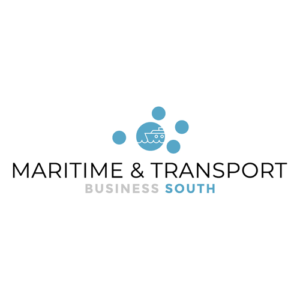This month’s round-up continues our new series of interviews that shine the spotlight on the chairs of each of the Action Groups.
Fran Collins and Gary Whittle co-chair the Maritime and Transport South Action Group. Fran is Chief Executive of Red Funnel and has spent over 20 years in the merchant marine industry. Gary is Commercial Director at Meachers Global Logistics.
In addition to her role as Chief Executive at Red Funnel, Fran is an active member of industry bodies, including her recent appointment to the Saga Cruise Board. She also has a breadth of experience across the marine sector, from shore-based management, operations, customer services and strategic project development.
It is this deep understanding of the breadth of the industry that has motivated both Fran and Gary to get involved with the Maritime and Transport South Action Group, relaunching it in 2021 to address challenges in the Central South region, from its former name of Cruise & Port.
Fran explains: “The Maritime and Transport South Action Group exists, and has had traction, because it represents the collective voice of our industry within our region. Our ambition is to provide an authoritative and collective voice for the Central South region, reflecting the interests of all key organisations within our sectors to proactively identify opportunities, take action and influence change. We are working to represent members in a uniformed and impactful way, demonstrating the region’s uniqueness.
“We have the ability to address regional-specific issues such as decarbonisation, development, skills and transport infrastructure. We work collaboratively with business leaders, representing some of the most influential organisations in our sector such as Southampton Airport, Solent Gateway, DP World and Portsmouth International Port.
“What’s important, is we recognise and understand the entire journey, from distribution, through the road networks, air and sea, from start to finish.”
Gary adds: “Collaboration is key, across industries and operators. It is this collaboration across the maritime and transport sectors that is key to our cut-through, connect the Central South region, influence policy to drive change and create opportunities for our collective industries, workforces and the local economy.”
Fran continues: “Gary and I took over the group pre-pandemic, and the decision during lockdown was to suspend the group activities to enable members to concentrate on recovery. Now, we’re all looking towards the future and we’re in an exciting place, where we are gaining traction and respect with key stakeholders.
“The group recently provided feedback to REA – the association for renewable energy and clean technology – which produced a report on decarbonising transport and using the Southampton & The Solent as a case study. I was then invited to their Decarbonising Transport: Enabling local energy solutions event in May on behalf of MTAG, where I took part in a panel discussion around the national and regional opportunities and delivering integrated transport decarbonisation plans.
“We’re also working closely as a group prepare communications for relevant MPs around the key issues effecting our sectors. Most recently we were in correspondence with The Rt Hon Caroline Noakes MP to express our concerns around changes to the tax treatment of red diesel. We are continuing to champion the region on issues such as these and ensuring that they are being seen by influential stakeholders to ensure that our sector and region is heard.”
Solent Freeport represents a major opportunity for the region – what is your view on the benefits it will bring to the region and what we need to do to ensure we get the most from the status?
Gary commented: “The Solent Freeport will bring a number of benefits to the region. Firstly, it will help attract significant inward investment into the designated areas of the Freeport, creating new jobs and new opportunities for local suppliers. It will also help market the Solent region both nationally and internationally as an innovative and vibrant place to work and live. Finally, it will help retain some existing transhipment business that currently uses the infrastructure within the ports and will act as a catalyst for the region to work collaboratively for the greater good of the local economy. It’s a really exciting, once-in-a-lifetime opportunity and should be embraced by thee whole business community.




